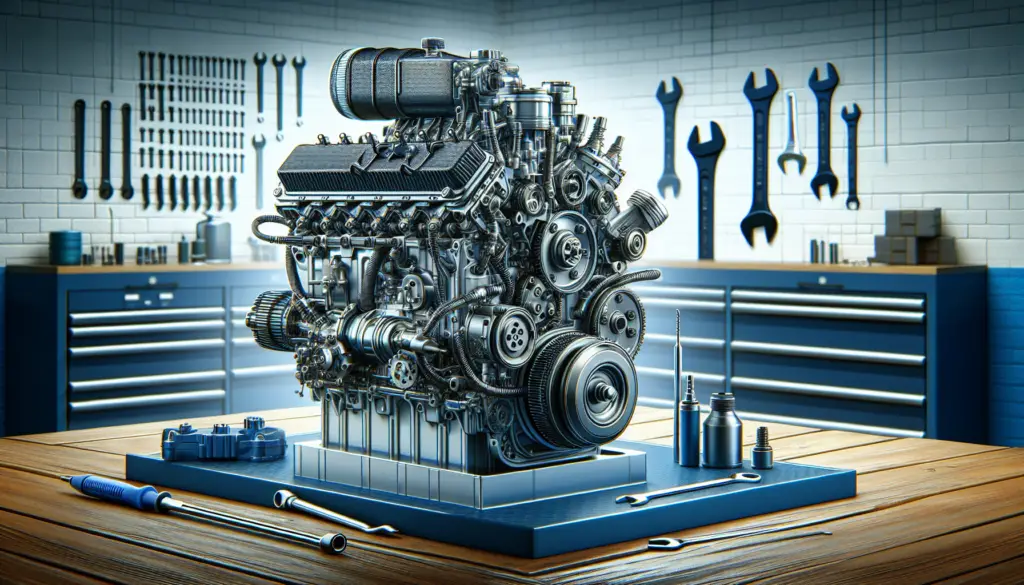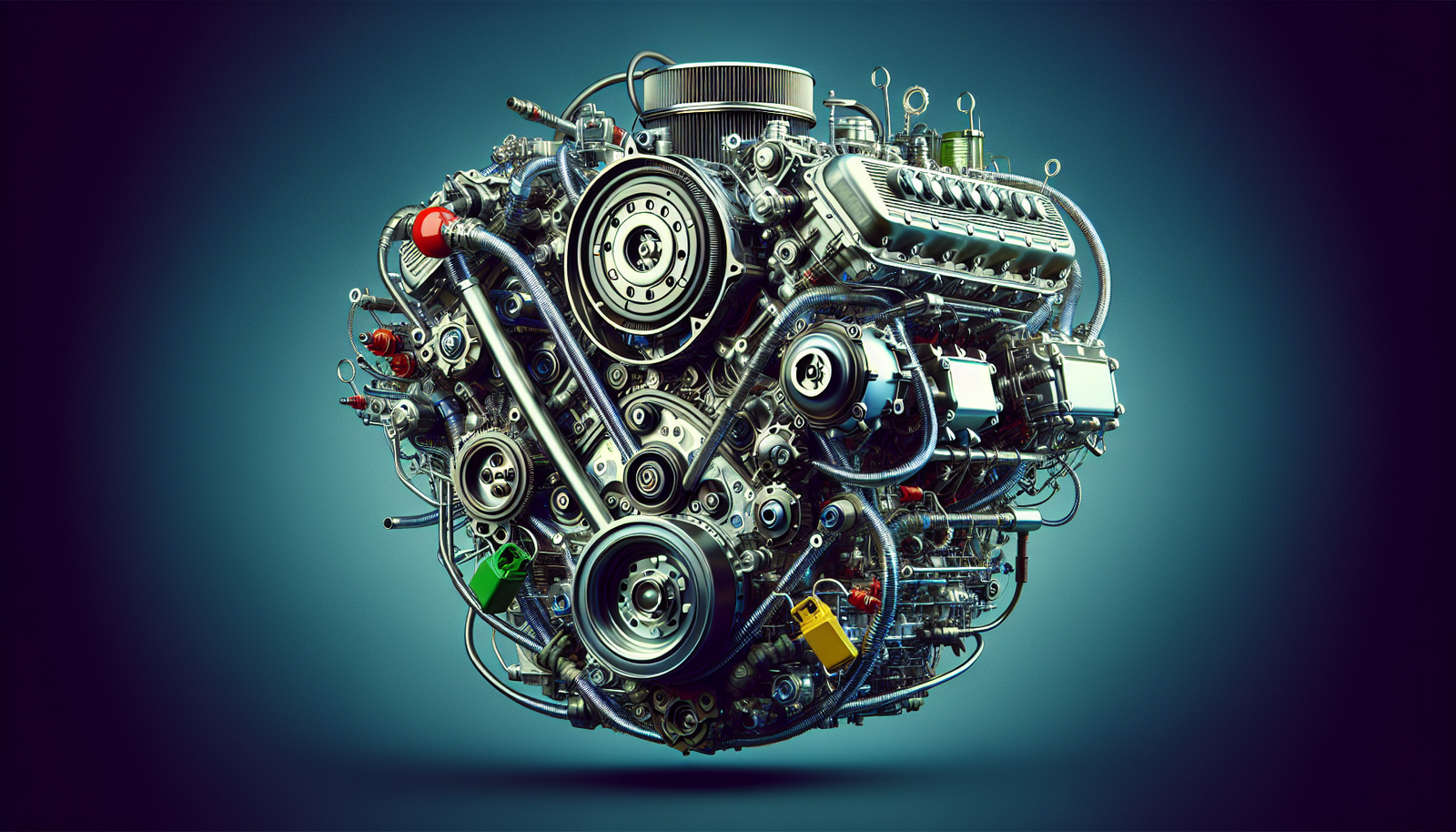Imagine yourself out in the open sea – the sun is shining, the breeze is gentle, and all you can hear is the gentle lapping of the waves against your boat. Every boating enthusiast knows how idyllic this scenario is, but maintaining it requires more than just a love for the ocean. Efficient fuel management is crucial to ensure that your boat’s engine runs smoothly and efficiently. In this article, you’ll learn some of the best fuel practices for boat engines, understanding factors such as the type of fuel to use, fuel storage, and handling, as well as essential maintenance tips. With these insights, you’ll be well on your way to more fun and less worry on your boating adventures.

Understanding Fuel Types
You might wonder what goes on under the hood every time you fire up your boat engine – all those noises and vibrations can be a bit overwhelming. But it all begins with the fuel type you use. So, to demystify these mysteries a bit, let’s talk fuel types.
Differences between diesel, gasoline, and electric engines
There are three main types of engines you might find on boats: diesel, gasoline, and electric. Diesel engines are known for their durability and better efficiency. They tend to last longer and require less maintenance compared to gasoline engines. But gasoline engines are commonly preferred due to their affordability and lightweight quality which makes them great for smaller boats. Electric engines, on the other hand, are the newest player in the game. They guarantee zero emissions and can offer quiet and smooth operation. These advantages, however, come at a much higher initial cost.
Choosing the right fuel for your boat
Knowing it’s time to refuel isn’t enough. It’s vital to know the right type of fuel your boat requires to deliver optimal performance. Simply pumping any available fuel can lead to devastating consequences. The right fuel depends on your type of boat and engine. For instance, larger boats with diesel engines require diesel fuel, while smaller boats with outboard motors usually run on gasoline. And you must always bear in mind – never, ever try to fuel an electric engine with diesel or gasoline.
Constant Engine Monitoring
It’s easy to set sail and forget about the engine roaring behind you. But continuous engine monitoring can save you hefty repair bills, prevent major engine problems, and enhance fuel efficiency.
Importance of gauge accuracy
The accuracy of your boat’s fuel gauge is paramount as it can provide valuable insights into your boat’s fuel consumption. It’s not just about knowing how much fuel you have left, an inaccurate gauge can lead you to make detrimental decisions, such as overloading your boat with fuel or not carrying enough. Therefore, it’s crucial to check your fuel gauge regularly to ensure it’s reporting accurate readings.
Understanding fuel flow rates
Understanding fuel flow rates is a crucial part of maintaining the health of your boat engine – these rates tell you how much fuel your boat uses within a specific time. This information allows you to better plan your trips, anticipate refueling times, and operate your boat more economically.
Recognizing signs of poor engine performance
Poor engine performance can signal problems that need your immediate attention. Signs such as decreased power, excessive smoke, unusual noises, or increased fuel consumption should not be ignored. They could indicate something as minor as a clogged air filter, or as major as a failing engine.
Regular Engine Maintenance
Keeping your boat’s engine humming requires regular maintenance. This not just keeps the boat running at its peak, but can also optimize fuel efficiency.
Importance of routine checks
Routine checks should be an integral part of your boat maintenance routine. These include inspecting the spark plugs, changing the oil, checking the cooling system, and verifying the integrity of the fuel system. Regular checks can help spot & rectify problems before they escalate and ensure your boat remains sea-worthy for longer.
Effects of maintenance on fuel efficiency
Regular maintenance can significantly impact your boat’s fuel efficiency. Simply cleaning and changing the air filter can increase fuel efficiency. Similarly, blocked fuel lines can cause your engine to work harder and burn more fuel, so keeping them clean directly influences your fuel consumption rates.
Tips for maintaining your boat engine
When it comes to maintaining your boat engine, some tips can go a long way. Regular oil changes, for instance, keep your engine running smoothly. Ensuring the propeller is balanced and in good condition can prevent unnecessary wear and tear. Lastly, storing your boat properly when not in use can prevent rust and degradation, leading to better performance.

Efficient Fuel Consumption
Running your boat’s engine efficiently is more than just saving a few bucks on fuel; it can greatly extend the life of your engine.
Easy tips for fuel-efficient driving
Running your boat efficiently concerns about how you drive. Quick accelerations and high speeds can drain your fuel quickly. Additionally, constantly changing speeds requires more fuel than maintaining a steady one.
Considerations when using dual engines
If your boat has dual engines, remember they can consume fuel quickly if not handled right. Balancing the use of both engines, can increase your fuel efficiency.
How weight affects fuel consumption
The weight of your boat heavily influences fuel consumption. Extra weight makes the engine work harder, burning more fuel in the process. So keeping your boat as lightweight as possible and only carrying essentials can improve fuel efficiency.
Optimizing Boat Speed
Managing boat speed isn’t just about breaking speed records – it impacts fuel consumption too.
Understanding the ‘hull speed’
The hull speed, or the maximum speed your boat can travel without planing, can greatly impact how fuel-efficient your boat is. Ensuring your boat is maintaining a speed close to this ‘hull speed’ can help to reduce fuel consumption.
Balancing speed and fuel consumption
The interplay between speed and fuel consumption is a delicate balancing act. While getting to your destination faster may seem attractive, it comes at a cost – higher fuel consumption. So, finding a speed that gets you there timely and economically is crucial.
Storing Fuel Properly
Believe it or not, there’s a right way and a wrong way to store fuel. And doing it wrong could lead to problems.
Correct storage methods for fuel
Storing fuel correctly helps ensure it lasts longer and continues to deliver optimal performance. This includes keeping it in a cool, dry place away from direct sunlight, and in approved containers to prevent contamination.
Impacts of temperature on stored fuel
Temperature can greatly influence stored fuel. High temperatures can cause fuel to evaporate and degrade, altering its composition and effectiveness. So, it’s crucial to store fuel in a controlled environment.
Tips for long-term fuel storage
Long-term fuel storage requires a bit more attention. Adding a fuel stabilizer can prevent the fuel from breaking down. Also, ensuring the tank is full can prevent condensation, which could lead to corrosion or algae growth.
Emergency Fuel Procedures
Things can go wrong, it’s just part of life. Having a plan for your fuel management in emergencies can make a huge difference.
Safety tips for fuel spills
In case of fuel spills, safety should be your major concern. Clear the area, reduce potential sparks, absorb the spill, and dispose of the waste appropriately.
Use of fuel additives in emergencies
Fuel additives can be a lifesaver in engine emergencies. They can help clean and protect your engine, improve performance, and even increase fuel economy.
What to do in case of engine failure
In case of engine failure, staying calm and following a pre-established plan can save you a lot of trouble. This could include pulling anchor, contacting authorities, or even manually rowing to safety.
The Role of Boat Design in Fuel Management
You might not think about it, but the design of your boat directly influences how fuel is managed.
How hull shape affects fuel consumption
The shape of your boat’s hull impacts how it interacts with water and thus, influences fuel consumption. For example, a flat-bottom boat pushed a lot of water, increasing drag and fuel consumption.
Impact of boat size on fuel efficiency
The size of a boat matters, too. Larger boats require more energy and thus more fuel to move. Smaller boats, conversely, require less, making them more fuel-efficient.
Importance of boat balance
Having a properly balanced boat ensures that the hull moves through the water efficiently, which helps to reduce fuel consumption. Ensure you’re distributing weight evenly across all parts of your boat.
Environmental Impacts of Fuel Management
Like everything we do, how we manage our boat fuel has an impact on the environment.
Effects of fuel spills on marine life
Fuel spills can be devastating to marine life. Fuel in the water can hurt and even kill marine animals, damage plant life, and pollute the water. It’s our responsibility to prevent and properly clean up spills.
Choosing environmentally-friendly fuels
Certain fuels are more environmentally friendly than others. For instance, biofuels or electric energy can reduce CO2 emissions significantly. Opting for these fuel sources can help protect our marine environments.
Consequences of poor fuel management
Poor fuel management can lead to unnecessary fuel spills and leaks, which harm our environment. Moreover, inefficiencies can lead to overconsumption of resources. Hence, it is absolutely crucial to be conscientious about how we manage fuel.
Advanced Fuel Management Technologies
Technology’s always advancing, and it’s no different for fuel management technologies. These can greatly improve how we utilize and manage fuel.
New technologies for monitoring fuel
New tech, like digital fuel gauges and fuel flow meters, enables more accurate fuel readings and make it easier to track fuel use.
Innovations in boat engine design
Innovations in boat engine designs, such as direct fuel injection, enable engines to be more fuel-efficient than ever before.
Role of technology in preventing fuel waste
Advancing technology is playing a significant role in preventing fuel waste. This includes better fuel storage solutions, more efficient engine designs, and better ways to monitor and manage fuel consumption.
Proper fuel management is indispensable for every boat owner. It’s not just about saving money; it’s about ensuring the longevity of your engine, the safety of your trips, and the functioning of your boat. Plus, it’s a way for us to fulfil our responsibility towards our aquatic habitats. By understanding fuel types, monitoring your engine, maintaining it regularly, and utilizing advancing technology, you can become a pro at fuel management!

